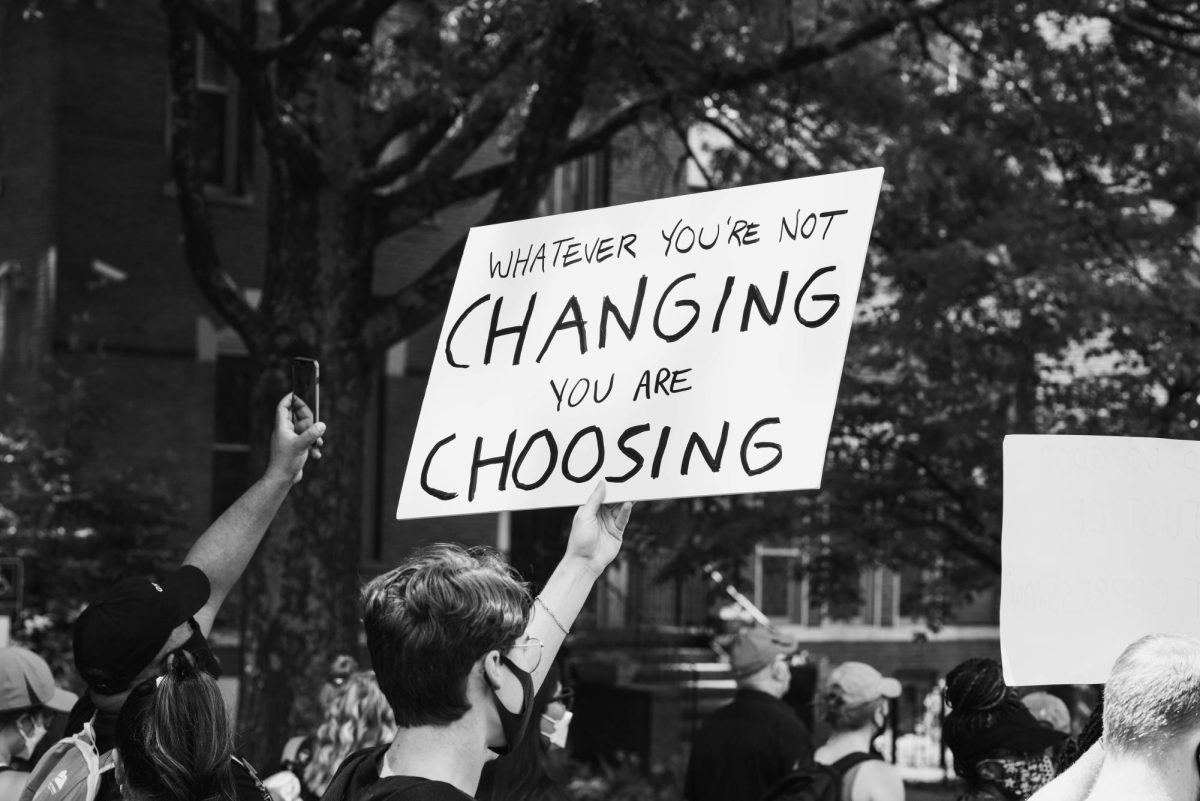As many readers of the opinion section have seen, I have uploaded many articles surrounding contentious world issues. In light of these publications, I often get the question: Why bother?
Many (including myself) never expected to be involved in intense debates about the most pressing issues. These issues are scary and often appear insurmountable. I think many of us can see what is currently happening in the world and feel this way.
Should we still care about these issues? If so, why? Most of us could probably carry on with life as usual if we avoided everything that isn’t in our direct line of sight. School is still in session, work is still early in the morning and the weekend is on the horizon. We can (for the most part) live fine according to this simple schedule. The things that do not directly affect us are, therefore, useless for us to explore.
What I hope to achieve in this brief article is to deny this “traditional” view of societal interaction and explain why it is so crucial that we all do something to leave the world a better place. As my title suggests, the reason why we usually hesitate toward direct action is the very reason why we should no longer avoid it.
We all have a choice. Many self-help gurus and more modern proponents of Stoic philosophy have turned this idea into somewhat of a watered-down concept. The quasi-religious adherence to efficiency and productivity is not truly what makes the world a better place. These are not natural human tendencies. In my view, what defines a person as moral and what gives one essence and purpose in life is not so much what one can do for oneself or even what one can do for everything immediately surrounding them. It is how we reflect on what happens to those of our kind at every corner of our planet. A deep solidarity with humanity is the defining trait.
If we truly think about it, there is no normalcy in our lives unless there is someone who allows it. This “someone” or even “something” takes different forms. Good and evil mean different things to different people, but all too often, petty conflicts and battles leave us struggling for answers and guidance. This is why the ethics of humanity are imperative.
It is the substance and purpose of life. We must fight because there was someone who fought for us. Never will we meet many of them, but this didn’t impede their goals of envisioning a world that is better. As the famous activist and writer Emma Goldman wrote in her “Anarchism and Other Essays”:
“The history of human growth and development is at the same time the history of the terrible struggle of every new idea heralding the approach of a brighter dawn. In its tenacious hold on tradition, the Old has never hesitated to make use of the foulest and cruelest means to stay advent of the New, in whatever form or period the latter may have asserted itself. Nor we need retrace our steps into the distant past to realize the enormity of opposition, difficulties, and hardships placed in the path of every progressive idea. The rack, the thumbscrew, and the knout are still with us; so are the convict’s garb and the social wrath, all conspiring against the spirit that is serenely marching on.”
What is to be noticed in Goldman’s lengthy excerpt? Pursuing “good” isn’t a utopian or idyllic process. It is possible, though, regardless of what history tells us. The last sentence of the passage displays this clearly. We truly cannot begin to understand what the “good” looks like though until we see how evil manifests itself in the world. When we read Dostoevsky, for example, we are exposed to the human impulse toward evil. It is much easier to enforce the wrong than the good. This is why evil only reproduces further if we stay on the sidelines—if we say quiet and easily dismissible.
Nothing will always work, and it should not be expected that good will always overcome evil. But in our small, incremental lifetimes, no other option is available if we wish to see a reduction in suffering and harm.
Bravery is listening and opening ourselves up to new ideas, new places and new people. Being a brave person means sacrificing yourself for the greater good of humanity, not for the interests of others but for the humanity of others. The brave ones who fought for our freedom to be disinterested are often never heard of. Of course, we have the mythical stories of famous leaders but never of those who fought for them. Whereas most leaders have escaped and have someone to defend them, many of those who perished never had this liberty. They saddled up to do battle while expecting nothing in return.
As the late great Christopher Hitchens once said in his book “Mortality”:
“Bravery? Hah! Save it for a fight you can’t run away from.”













